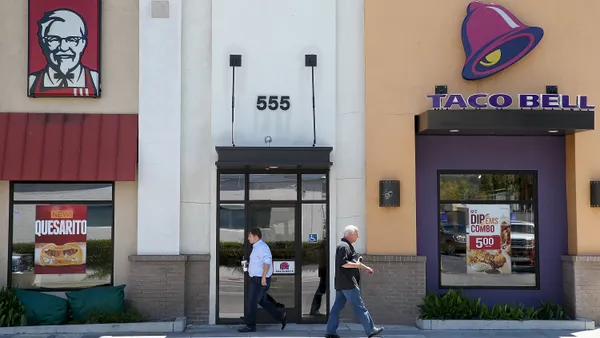Dive Brief:
- The New York Times cut its revenue forecast for Q1 and said it now expects digital advertising revenue to slide 10% for the period amid fears around the coronavirus spreading, according to a regulatory filing reported in The Wall Street Journal. Total Q1 ad revenue is now expected to drop in the mid-teens percentage-wise, as opposed to the previously forecast 10% dip.
- The Times in early February predicted digital advertising would drop in the mid-single digits percentage-wise for Q1, per the Journal. In the latest filing, however, CEO Mark Thompson wrote the paper was experiencing "a slowdown in international and domestic advertising bookings" attributable to "uncertainty and anxiety" around coronavirus.
- Publicis' Zenith group this week also said it would lower its global ad spending forecast for 2020 to account for the virus' effects, according to the Journal. In December, the agency said global ad spending would grow $4.3% to $666 billion this year.
Dive Insight:
Businesses for weeks have adjusted their sales outlooks to reflect coronavirus' effects on manufacturers, supply chains and workforces. The Times' lowering its forecast for Q1 is one of the clearest signals yet on how the spread of the virus could cut off advertising revenue for media businesses as brands, particularly those in categories like retail and travel, halt their spending.
Fewer bookings might amplify pressures on publishers, such as the Times, that were already expecting lower ad revenue amid broader negative trends in the media sector. As noted in the Journal, digital advertising could face the strongest headwinds in the near term because switching off online ad spending is fairly simple, meaning any impact on digital ad budgets could also be felt by behemoths like Google and Facebook. Out-of-home stands to be another channel affected if people leave the home less, the report said.
Analysts have forecast that any halted ad spending now could be reallocated for later in the year. But the continued spread of coronavirus might also lead to more significant delays and disruptions, hence a company like Zenith revising its full-year outlook.
Anxiety about the potential for coronavirus to spread through large gatherings has roiled the events space in recent weeks, and could have a deleterious effect if it extends to destination viewing events like the Summer Olympics. Interpublic CEO Michael Roth said at a conference on Tuesday that the ad holding giant is already feeling the impact of coronavirus on its events business, per the Journal, though the executive signaled confidence in the group's overall performance.
Still, several major confabs have been canceled of late, including Mobile World Congress Barcelona, Facebook's F8 developer conference and its annual marketing summit and other company-specific gatherings from Shopify, Adobe and others. South By Southwest, which has climbed in importance for marketers and tech firms in recent years, this week affirmed its annual mid-March gathering in Austin, Texas, is still on. But Facebook, Twitter and Vevo — frequently major presences at the show — have all dropped out due to coronavirus concerns, according to Ad Age.
On the flip side, spaces like e-commerce and streaming could actually see a windfall as people decide to stay inside. In a research note published late last week, BMO Capital Market Analyst Dan Salmon said Netflix could be an "obvious beneficiary" if consumers hunker down en masse to avoid contracting or spreading coronavirus. Similarly, some advertisers could shift their focus to traditional media channels like TV to try to offset losses and keep consumers engaged.
"Traditional television could fare relatively better because of the likely improvements in audience levels, while outdoor advertising may be worse off with lower levels of foot traffic in many places," GroupM's Global President of Business Intelligence Brian Wieser wrote in a blog post. "At the same, time [sic] we emphasize that spending on paid media will not necessarily correlate with spending by marketers on services, such as those provided by agencies."














